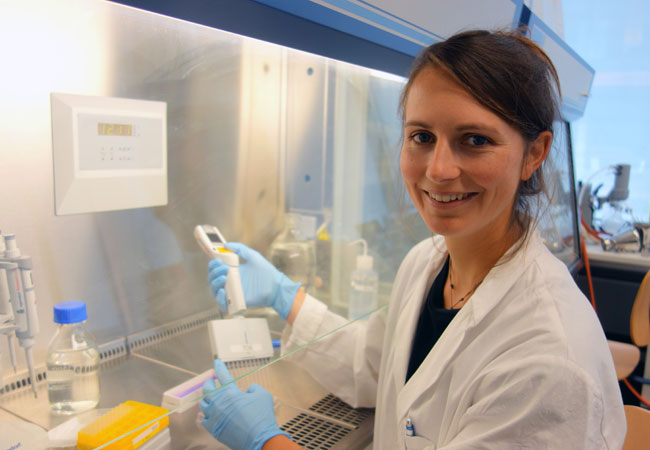
So-called “bioplastics” are marketed as an environmentally friendly alternative to conventional, petroleum-based plastics. They can be made from renewable feedstock, might be bio-degradable or even both. The question is however if these biomaterials are safer than conventional plastics with regard to the chemicals they contain. A new study by just published in the journal Environment International addresses this question. Scientists from Goethe University Frankfurt and PlastX Research Group have analysed everyday products made of bio-based and/or biodegradable materials now report that the chemicals these alternatives contain are similarly toxic like those in conventional plastics.
Plastic products are under a lot of public pressure: The manufacturing from petroleum is considered unsustainable, the global plastic waste problem is largely unsolved, and, since they can contain toxic substances such as bisphenol A, everyday plastics often make the headlines. In response, new materials have entered the market promising a better environmental footprint. These include bioplastics that can be bio-based, that is made from renewable feedstock (e.g., bio-polyethylene) as well as biodegradable, that is they degrade under natural conditions such as polylactic acid. Other alternative materials can be made from plant-based materials, such as cellulose. But are these biomaterials safer than conventional plastics with regards to the chemicals they contain?
Three out of four products contain chemicals that are toxic in vitro
The PlastX research group, led by the Institute for Social-Ecological Research (ISOE), has addressed this question in a new study in collaboration with the Norwegian University of Science and Technology and the Goethe University of Frankfurt. It is the most comprehensive study to date that analyses the chemical composition and toxicity of bioplastics and plant-based materials and compares them with conventional plastics. “In order to test for potential adverse effects of plastic chemicals, we extracted them from the everyday products and analysed them to in vitro bioassays,” explains Lisa Zimmermann, first author of the study. “Our results demonstrate that bio-based and biodegradable materials are no safer than conventional ones. Three-quarters of the products contained harmful chemicals,” says Zimmermann. “This means that the products contain chemicals that have toxic effects in cells or act like hormones. The same is true for conventional plastics. Again, we found that three out of four products contained harmful chemicals.”
Biomaterials contain up to 20.000 chemicals
The 43 bio-based and biodegradable products that were studied included for instance disposable tableware, chocolate packaging, drinking bottles and wine corks. Chemical analysis demonstrated that 80% of the products contained more than a thousand, some products even up to 20,000 chemicals. “Cellulose- and starch-based products contained most chemicals. They also triggered a stronger in vitro toxicity than others,” explains the biologist Zimmermann.
From raw material to end product: overall toxicity increases
On the one hand, the study revealed that the end products analysed contained a wider range of chemicals and a higher toxicity than the raw materials from which they were manufactured. That indicates that new substances are added or generated during the conversion of the raw material into the final product. On the other hand, each bio-based and biodegradable product had an “individual” chemical composition. “That makes it almost impossible to make general statements about the safety of specific materials,” explains co-author Martin Wagner from the University of Trondheim. “While a bio-polyethylene bag intended for food contact might contain toxic chemicals, a wine cork made of the same material might not and vice versa”.
Chemical safety of plastics should move onto the political agenda
The study shows: “For consumers it is not apparent whether they come in contact with harmful plastics, regardless of whether they are conventional or bio,” states the PlastX project manager Carolin Völker. Therefore, she demands that the safety of chemicals used in plastics and in alternative materials is guaranteed and already taken into consideration during the development of new materials. “Especially since we are seeing a strong trend towards biomaterials, the aspect of chemicals safety needs to be put on the political agenda.” So far, the precise effects of plastic chemicals on humans and the environment are still unknown and therefore further studies are needed that evaluate the risk of plastics and its alternatives. In vitro studies provide first evidence but are clearly not sufficient to determine health and environmental impacts comprehensively. “In order to develop better alternatives to conventional plastics, ecological and societal aspects must be considered in addition to their chemical safety. These aspects include greenhouse gas emissions, competition with food production and recyclability”. Because here too, just like with bioplastics much remains to be desired, Völker says.
Publication: Are bioplastics and plant-based materials safer than conventional plastics? In vitro toxicity and chemical composition. Lisa Zimmermann, Andrea Dombrowski, Carolin Völker, Martin Wagner (2020). Environment International, https://doi.org/10.1016/j.envint.2020.106066
About the PlastX research group The interdisciplinary junior research group PlastX – Plastics as a Systemic Risk for Social-Ecological Supply Systems is funded by the Federal Ministry for Education and Research (BMBF) within its programme “Research for sustainable developments (FONA)”. PlastX forms part of the funding area “Junior Groups in Social-Ecological Research.” Since 2016, six scientists have been investigating the problems posed by plastics from a social-ecological perspective. Their research partners in this endeavour are ISOE –Institute for Social-Ecological Research (lead institute), the Max Planck Institute for Polymer Research (MPI), Department of Physical Chemistry of Polymers, and Goethe University Frankfurt, Department of Aquatic Ecotoxicology. www.plastx.org
Source: press release, Institute for Social-Ecological Research (ISOE), 17 September 2020








